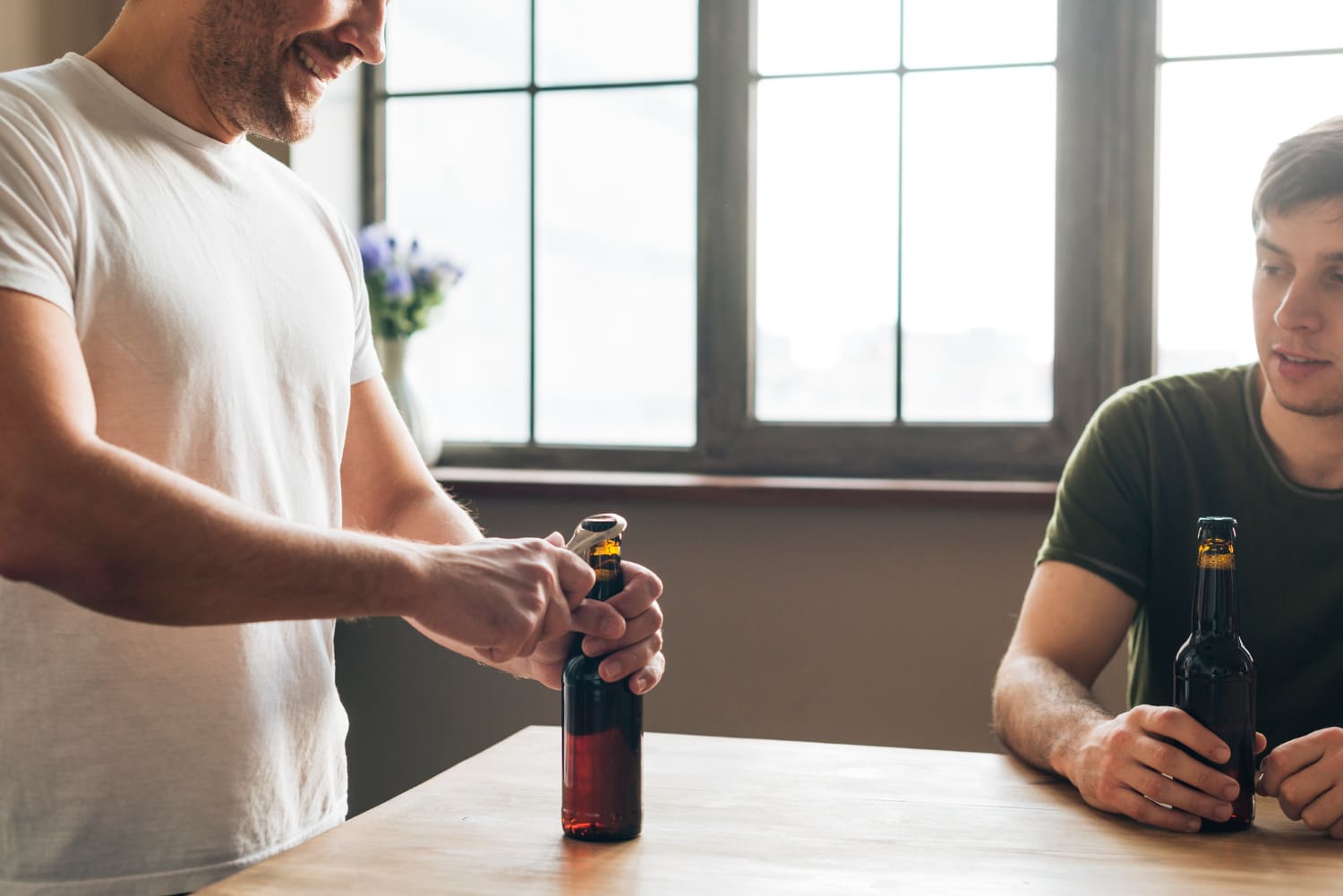
Help to Stop Drinking can feel overwhelming, but recognizing the need for change is the first step toward a healthier and more fulfilling life. Many people find themselves trapped in a cycle of drinking, unsure how to escape. The journey to sobriety is unique for everyone, but with the right support and tools, breaking free is possible.
Understanding the reasons behind drinking habits is key to addressing them effectively. Stress, social pressures, or coping mechanisms often play a role, and identifying these triggers is the foundation for a tailored recovery plan. Fortunately, numerous resources and support systems are available to guide those ready to embrace a new chapter.
Choosing to stop drinking is a courageous decision. With determination and the right guidance, you can overcome this challenge and embrace a future filled with clarity, health, and well-being.
Understanding the Need for Help
Seeking help to quit drinking often starts with recognising personal limitations and the need for external support. Many struggle alone due to societal stigma or feelings of shame, but acknowledging the problem is a powerful step forward.
When Is Professional Help Necessary?
Certain signs suggest the need for expert assistance:
- Frequent binge drinking or failed attempts to quit.
- Health problems, such as liver damage or frequent illness.
- Behavioural changes, like secrecy, irritability, or neglect of responsibilities.
Family and friends often notice these signs before the individual does. Observations of strained relationships, declining physical appearance, or disengagement from work and social activities may indicate alcohol dependence.
Honest self-reflection, combined with openness to professional guidance, increases the likelihood of successful recovery.
Recognising the Signs of Alcohol Dependence
Understanding the signs of alcohol dependence helps individuals and their loved ones take timely action.
Physical Symptoms
- Increased Tolerance: Needing more alcohol to feel the same effects.
- Withdrawal Symptoms: Experiencing nausea, shaking, or sweating without alcohol.
- Blackouts: Memory lapses caused by heavy drinking.
- Frequent Illness: Weak immune function or liver damage.
Emotional and Behavioural Indicators
- Neglecting Responsibilities: Ignoring work or family obligations.
- Secretive Behaviour: Hiding alcohol or lying about drinking habits.
- Intense Cravings: Feeling compelled to drink despite negative consequences.
- Emotional Instability: Experiencing mood swings, irritability, or isolation.
Recognising these signs is the first step in seeking the help necessary for recovery.
Available Treatment Options
Overcoming alcohol dependence involves a combination of approaches tailored to individual needs.
Therapy and Counselling
Professional therapy helps individuals understand their behaviours and build coping strategies. Common approaches include:
- Cognitive Behavioural Therapy (CBT): Helps individuals identify and change harmful thought patterns and behaviours. This approach includes Rational-Emotive Behavioural Therapy (REBT), which focuses on addressing irrational beliefs and promoting constructive emotional responses.
- Dialectical Behaviour Therapy (DBT): A specialised form of therapy that teaches emotional regulation, distress tolerance, and effective interpersonal skills. Originally designed for borderline personality disorder, it is also highly effective for treating substance use and co-occurring mental health conditions.
- Motivational Interviewing (MI): A client-centred approach that strengthens motivation to change by addressing ambivalence and building personal commitment to positive behavioural shifts.
- Contingency Management (CM): Utilises positive reinforcement to encourage desired behaviours, such as sobriety or attendance at therapy sessions. Rewards, such as vouchers or privileges, are provided for achieving specific recovery milestones.
Medication-Assisted Treatment (MAT)
MAT combines medications with counselling for a holistic approach:
- Naltrexone: Reduces cravings by blocking alcohol’s pleasurable effects.
- Acamprosate: Stabilises brain chemistry to support abstinence.
- Disulfiram: Causes unpleasant reactions when alcohol is consumed, acting as a deterrent.
Support Groups and Meetings
Support networks play a critical role in long-term recovery:
- Alcoholics Anonymous (AA): A 12-step programme focusing on peer accountability.
- SMART Recovery: Uses scientifically-based techniques for self-management.
- Al-Anon: Provides support for family members of individuals struggling with alcohol.
Building a Supportive Environment
Creating a strong support system is essential for recovery.
Family and Friends
Loved ones can foster recovery by:
- Offering encouragement and understanding.
- Maintaining open, honest communication.
- Engaging in activities unrelated to drinking to build new, healthy habits.
Professional Support
Therapists, counsellors, and healthcare providers provide specialised strategies and monitor progress. Joining group therapy enhances a sense of community, while online resources and helplines extend additional support.
Setting Personal Goals and Milestones
Setting goals creates structure and motivation, helping individuals stay on track during recovery.
Short-Term Goals
- Reduce alcohol intake gradually over a few weeks.
- Attend support group meetings regularly.
- Enlist a trusted friend for accountability.
Long-Term Planning
- Commit to abstinence for a year or longer.
- Repair relationships affected by alcohol misuse.
- Maintain a balanced lifestyle with healthy eating and exercise.
Reflecting on progress and adapting goals reinforces commitment to sobriety.
Take the First Step to Sobriety with BridgePath Place
Acknowledging the need for help and seeking support are transformative steps toward overcoming alcohol dependence. By understanding personal triggers, exploring available resources, and building a strong support system, recovery becomes achievable.
Therapy, medication, and support groups offer tailored tools to address the root causes of addiction. With determination and guidance, individuals can reclaim their lives, fostering a healthier and brighter future free from alcohol’s hold.
Overcoming alcohol dependence is possible with the right support. At BridgePath Place, we provide bespoke, evidence-based treatment plans in a private, luxury setting designed for your recovery. With our team of expert specialists, serene environment, and personalised care, you can reclaim your life and embrace a healthier future.
Visit BridgePath Place today to begin your journey to freedom from alcohol dependence.
Frequently Asked Questions About Overcoming Alcohol Dependence
Q1. What are the first steps to overcoming alcohol dependence?
Recognising the need for change and identifying the reasons behind drinking are key first steps. This self-awareness sets the stage for creating a recovery plan tailored to personal needs.
Q2. Why is seeking help important in quitting alcohol?
Addiction is complex and often requires professional guidance to overcome. Seeking help provides tools, support, and strategies to address both the physical and emotional challenges of quitting.
Q3. What are the signs of alcohol dependence?
Signs include increased tolerance, withdrawal symptoms, neglect of responsibilities, intense cravings, and emotional instability. Recognising these symptoms can prompt timely action.
Q4. How do therapy and counselling help in recovery?
Therapy provides personalised strategies for managing triggers and developing healthier habits. Methods like CBT and MI address harmful behaviours and build motivation for lasting change.
Q5. What role do support groups play in recovery?
Support groups create a community of individuals facing similar challenges. They provide encouragement, accountability, and shared experiences, which are crucial for maintaining long-term sobriety.
Q6. How can family and friends help someone stop drinking?
Loved ones can offer encouragement, maintain open communication, and participate in sober activities. A supportive, non-judgmental attitude helps build trust and fosters recovery.
Q7. What medications are used in alcohol recovery?
Medications like naltrexone, acamprosate, and disulfiram reduce cravings, stabilise brain chemistry, or deter drinking, complementing therapy for comprehensive recovery.
Q8. Why are personal goals important in recovery?
Goals provide structure, track progress, and maintain motivation. Setting short-term and long-term objectives helps individuals stay focused and adapt as they progress in their journey to sobriety.
